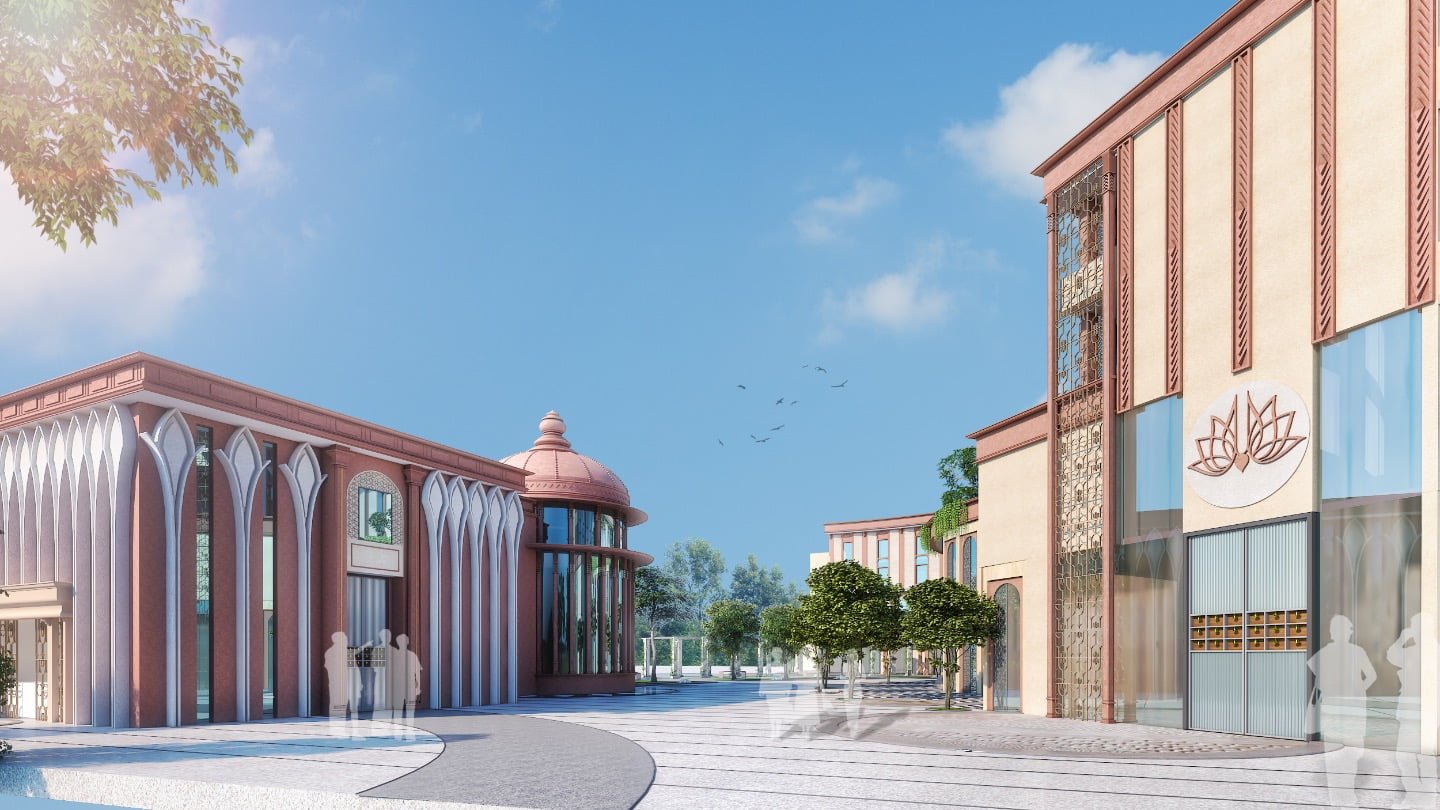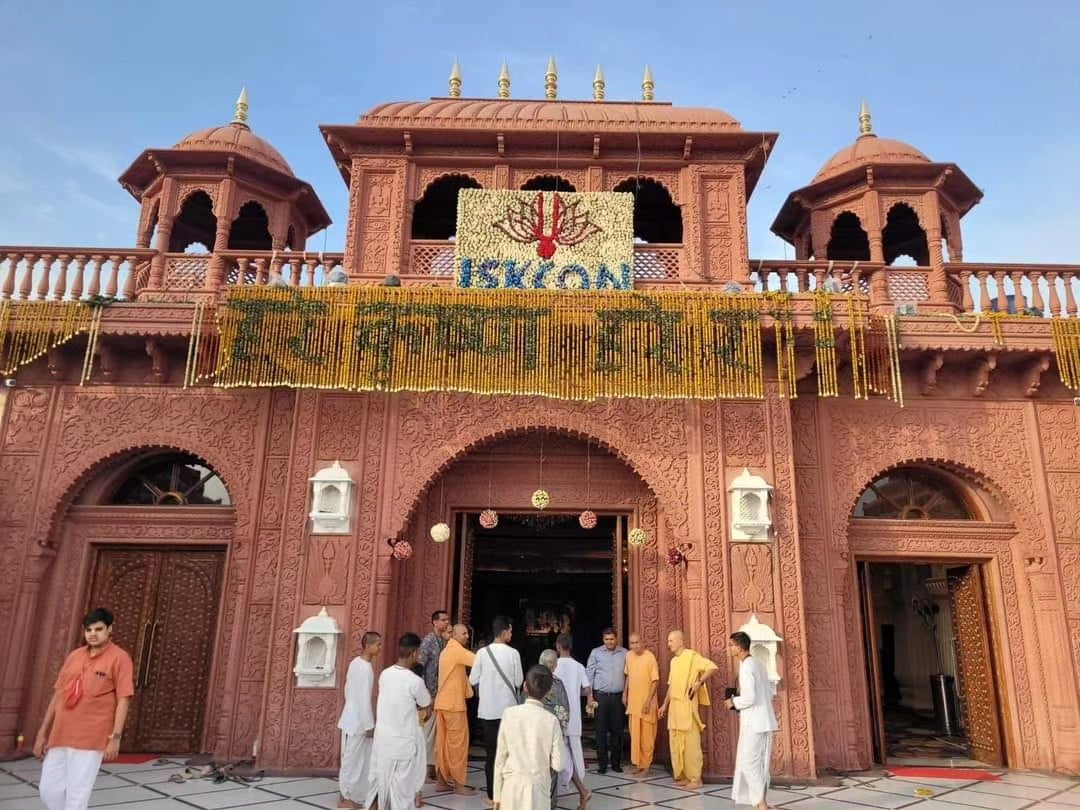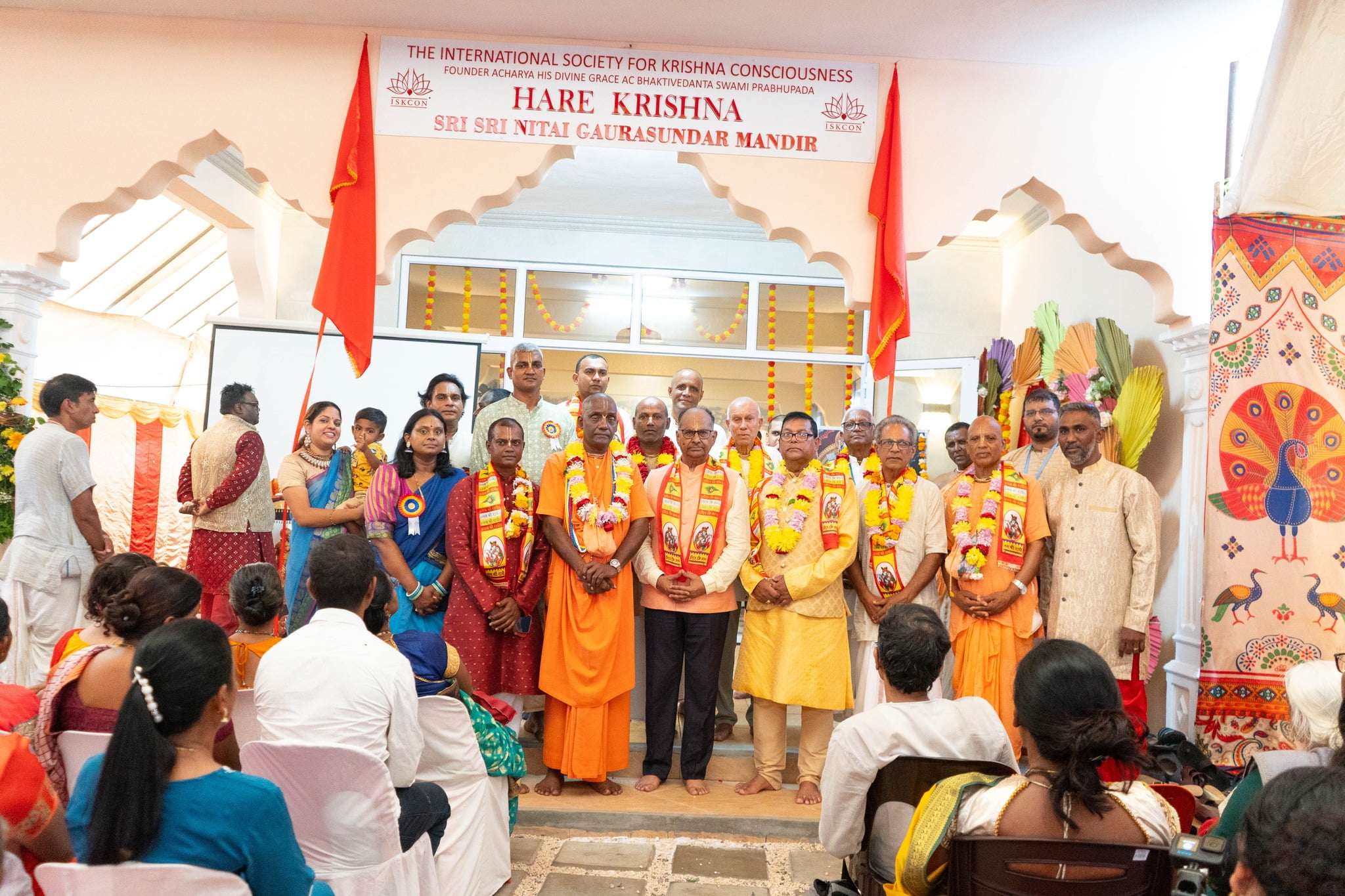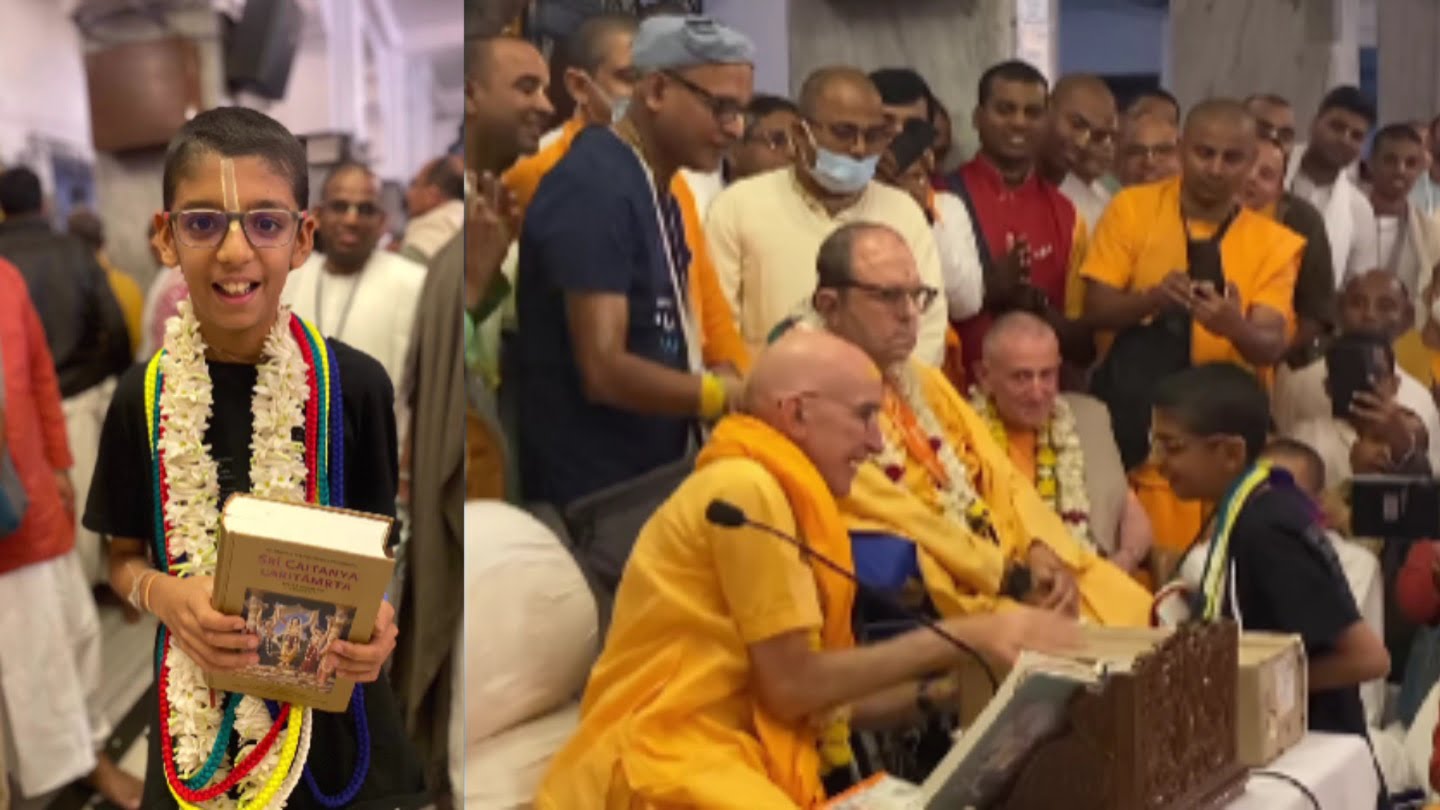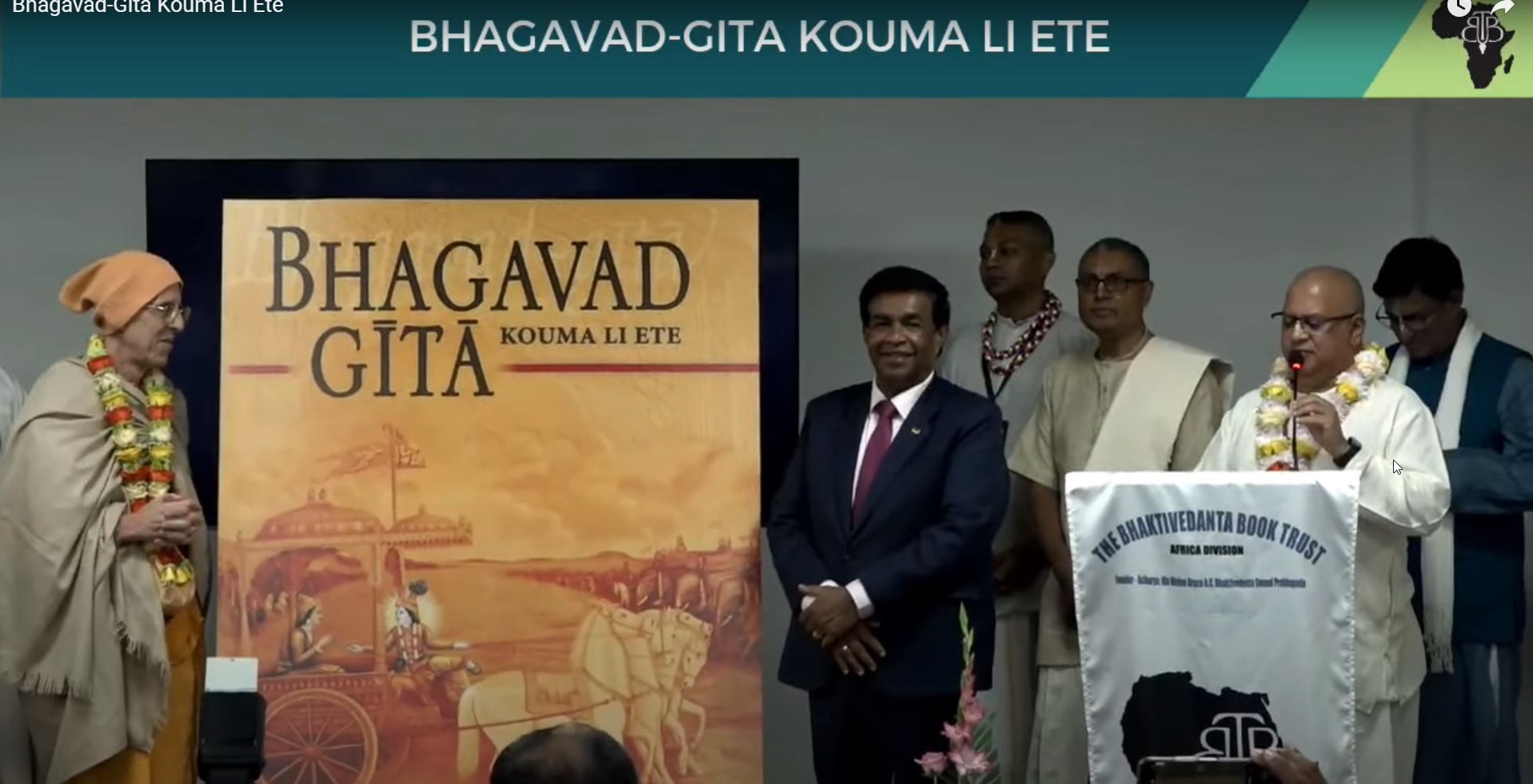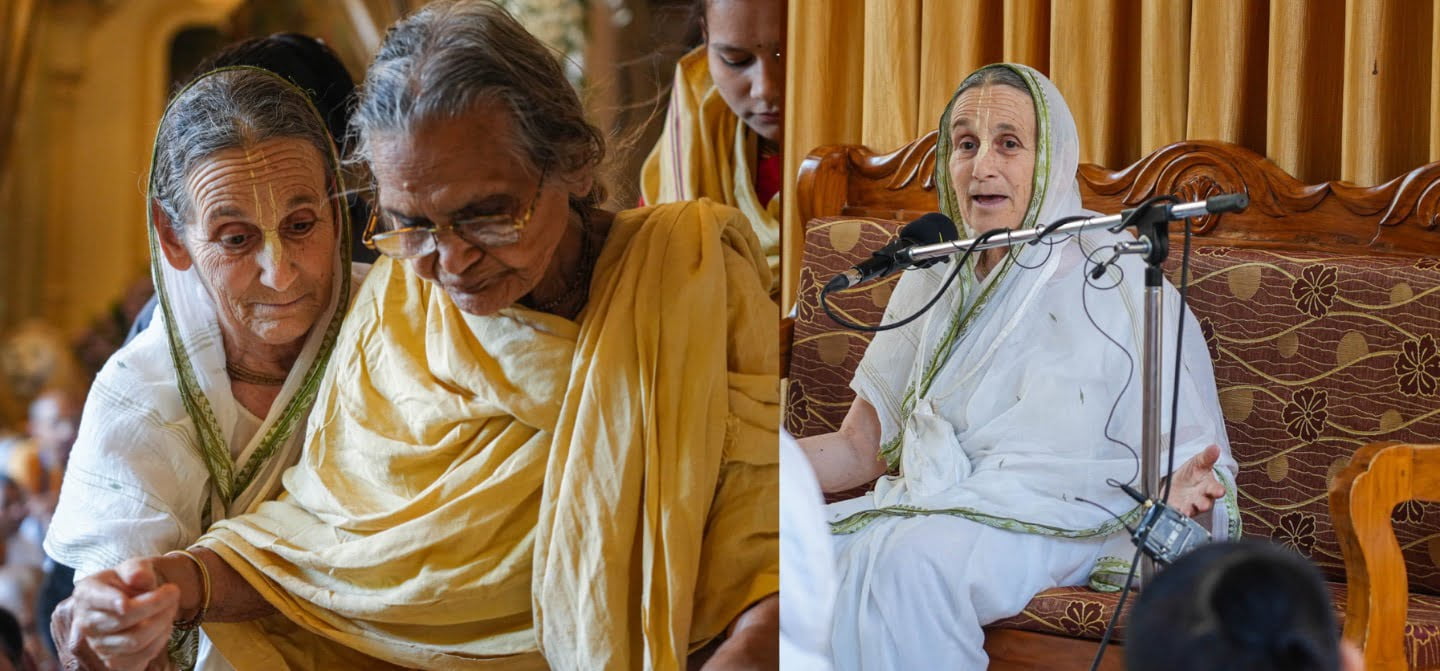Varnashram Ministry Impressed by Nilachal Dham on Tour of Indian Farms
By Madhava Smullen | Nov 08, 2014
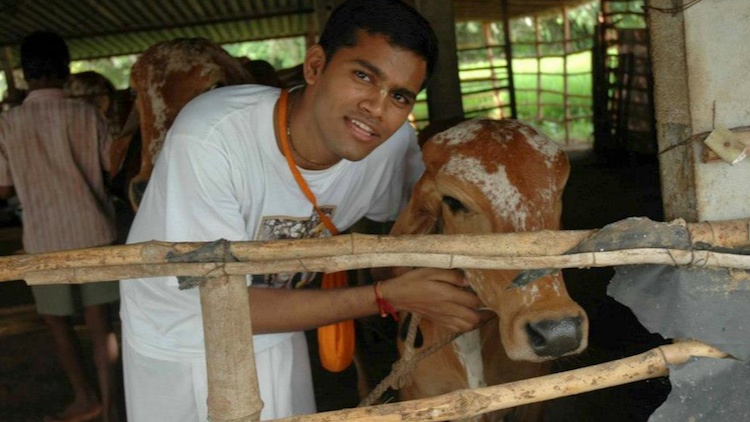
Recently, Arjuna Krishna Das and Ram Lakshman Das took a month-long tour of seven farm communities across India to report on and unite them all. Both devotees represent ISKCON Daiva Varnashram Ministry, which promotes the development of spiritual eco-communities in India.
Their travels took them first to ISKCON Juhu’s satellite farm project Nilachal Dham in Talasari, about seventy kilometres from Mumbai.
There, they were immediately impressed by project manager Damodar Dulal Das. “We were wonderstruck as we felt nothing but awe for this devotee, who has seriously dedicated his life to the mission of his spiritual master,” says Arjuna Krishna. “And we were really amazed to see his utmost concern and hospitality towards his guests.”
As he led Arjuna and Ram to Nilachal Dham’s residential quarters, Damodar regaled them with stories of his early struggles to establish the farm in the face of vandalism, death threats from “communists,” and stone-throwing tribals.

Freshly blossomed flowers at the farm
He also described walking over ten kilometres every day to find people who could help him in his mission to serve Sri Sri Radha-Rasabihari and fulfill Srila Prabhupada’s direction that a farm should provide ISKCON Juhu’s produce and dairy needs.
Offering his guests natural coconut water by way of refreshment, Damodar then took them on a tour of the twenty-acre farm, which is home to around twenty devotees.
He first showed them the many different varieties of vegetables grown on the farm, including cucumber, okra, karela (bitter melon), pumpkin, turia (luffa squash), and tomatoes. Nilachal Dham is also home to many exotic herbs with medicinal properties, and several indigenous varieties of rice that are on the brink of extinction due to modern farming practices, such as Lal Dangi, Padma, and Kali Karsni.
Damodar also showed his guests the farm’s plentiful supply of chiku fruits, and explained that in the past year they have pioneered the art of making chiku chips, which are selling well to the surrounding local community.

Visiting youth sample organic prasad with garden fresh veggies
The farm also grows organic marigolds and indigenous roses that are transported daily to ISKCON Juhu to be used in the service of its presideing Deities Sri-Sri Radha-Rasabihari.
Aftering seeing the extensive crops, Arjuna and Ram got to see and milk some of Nilachal Dham’s eighty Gir cows, an Indian breed that originates from the Gir Forest in Gujarat. Reddish-brown in color, Girs’ unique features include humps on their backs, convex foreheads, and long horns that grow downwards before curving back up. They produce large amounts of milk that contains conjugated lineolic acid, which has been proved to be an anti-cancer compound.
The farm also has a second twenty-five-acre property which cares for fifty cows that were rescued and rehabilited from highways where they were found injured, as part of its “Highways to Happyways” program.
“These cows were the local breed, not Gir cows, and were more aggressive and untrusting of humans, which is natural after the ordeals that they went through,” says Arjuna Krishna.

A rescued cow which lost its leg in a highway injury enjoys the peaceful life at Nilachal Dham
While the farm’s expenses are 600,000 rupees per month, it is already earning 500,000 rupees per month from its dairy products and crops.
Of course, it also supplies milk, ghee and vegetables to ISKCON’s Mira Road temple as well as ISKCON Juhu, which requires 5kgs of Ghee every day.
Cows are clearly extremely important to Damodar Dulal Das, who personally visits the Goshala every morning. “We should just focus on cows and their proper upkeep, and they will take care of us,” he said.
Finally, wrapping up his tour, Damodar Dulal took his guests to a hall built above the Goshala (cow shelter) with a beautiful scenic view that is used for conferences, meetings, and retreats.

Kirtan on the farm
There are thirty-two villages around the Thalaseri area, and Damodar has done a lot for their inhabitants, inviting doctors from Mumbai’s Bhaktivedanta Hospital to conduct free eye camps there. In return, grateful villagers are coming to help on the farm more and more.
Meanwhile for the Janmastami festival, 6,000 villagers visited Nilachal Dham without the community spending a single paisa on promotion. Next year, they’re expecting 10,000.
For Damodar Dulal, it’s quite a contrast from the early days of locals throwing stones at him. “Now they don’t throw the stones quite so hard!” he jokes.
It’s obvious from their report that Arjuna Krishna and Ram Lakshman left Nilachal Dham after their three-day visit inspired by the community, and particularly by its manager.

Jagannath, Baladeva and Subhadra — the presiding Deities of Nilachal Dham
“Damodar Dulal Prabhu is such an inspiring example, and he very much appreciated our intent of visiting and uniting all farm communities,” Arjuna Krishna says. “He said that we should meet once every quarter and should become the perfect example of co-operation amongst Varnashrama communities.”
Next on their tour, Arjuna Krishna and Ram Lakshman will visit Nandagram Farm in Gujarat; Pathmeda on the border of Rajasthan and Gujarat; Panchavati in Tamil Nadu; Venu Madhuri and Govardhan Eco Village in Maharashtra; and Gokul Dham near Belgaum in Northern Karnataka.
Watch this space for more reports on their travels.



